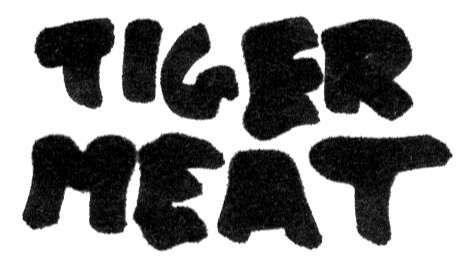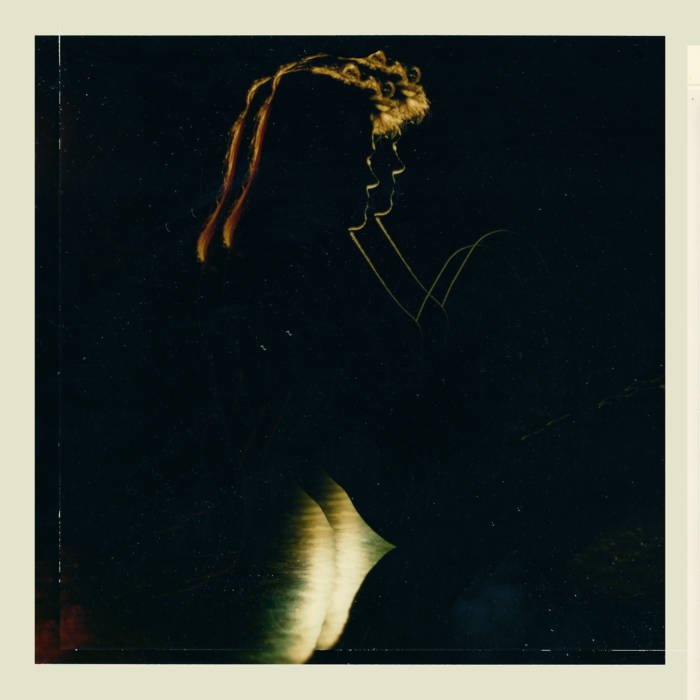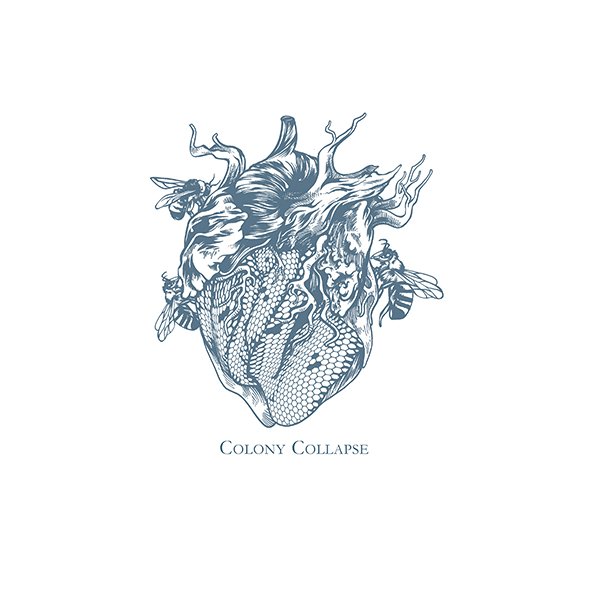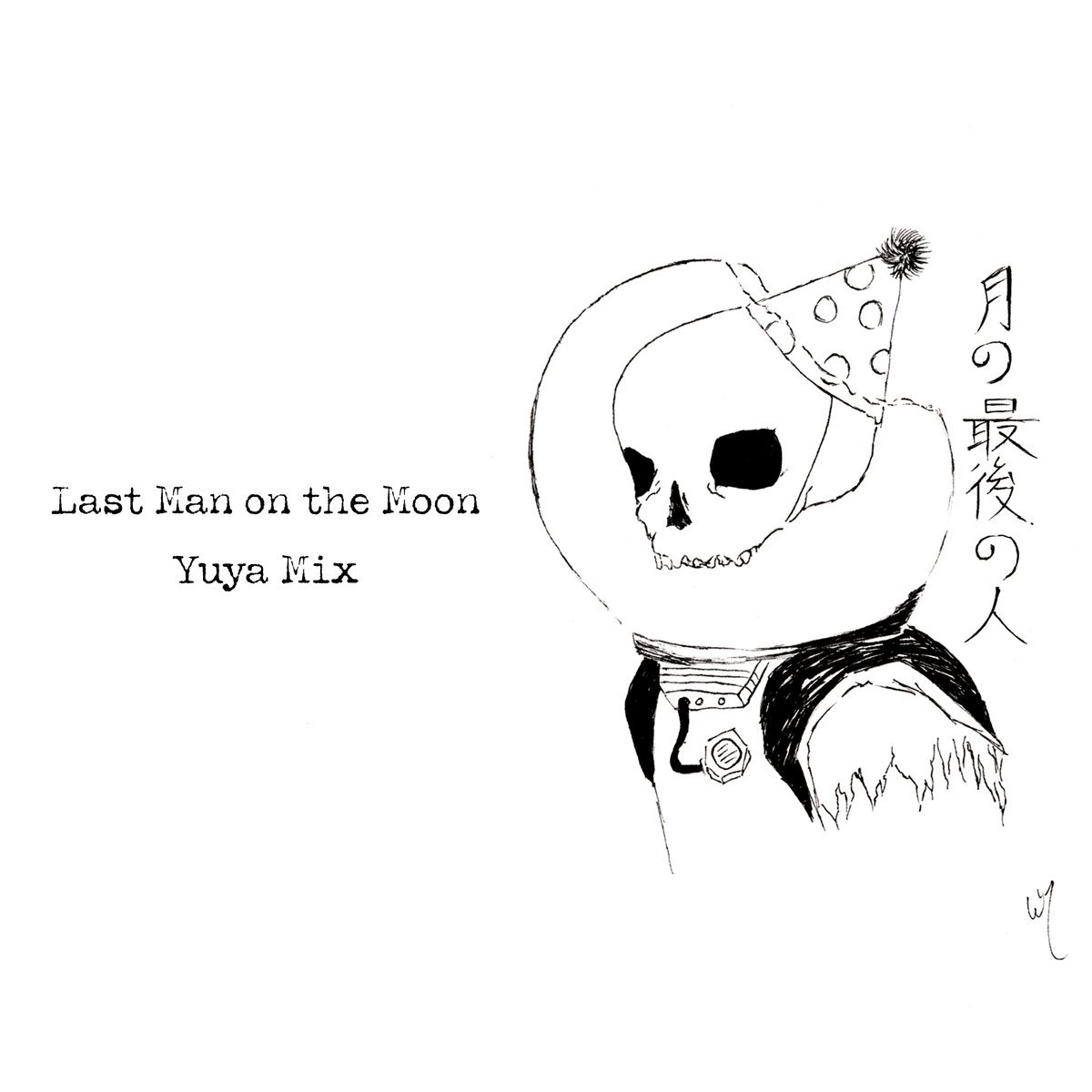Fine Mess
Those Flowers That Fix Me (2021)
Everyone’s Family Is Okay (2022)
Rock
— “Paper Trees (Scene of the Crime)”
Jeff Wesner: We went into the studio for Flowers in December of 2019, and that was as Beard at the time, so as a four-piece. Then the pandemic happened, and that album just took so long to mix and so long to get together, of course. And that's when we had the lineup change in the middle of that. We became Fine Mess as that album was transitioning from what it was recorded as, to what it came out as.
And then during the pandemic we couldn't practice, so Joe started sending songs. He would drop it off on my front door, I'd wait for him to leave and pick it up, and then I'd go to my drums and put on headphones and try to play something to it. And then Amy would take it and try to play something to it without knowing what I'm playing. And of course, you just play differently in that environment. We're not looking at each other in the eyes. We're not listening in real time. I'm just trying to get through the song, really. And then when it came together it was like, "Oh, that sounds really cool." I could never have imagined choosing to play in a band and write songs where you couldn't be in the room with another person, but in this case we did, and we were really excited about those songs. So we went back to the same studio [ARC (Another Recording Company) in Omaha] last December [2021] and recorded those songs too.
Amy Askew: It was really interesting, the process, the way that we recorded them originally, because like Jeff had said, we were all separate, we took a lot of time to create our individual parts, but we would do a song and move on, and move on, and move on — rather than when you do it organically, you play it several times over as a group. So after we recorded all those, we actually had to go back and relearn what we had done [laughs]. So it did take us a little bit of time to play together. And some of the songs did change a little bit, because of just how we had originally done it. And actually, one of the songs that didn't make the cut was one that we really, really liked our first recording, but we couldn't recreate it the way that we wanted to, to give justice of what we had liked about the original recording. So yeah, that was definitely different than the first album.
Joe Raiche: [In 2020] I was sitting at home a lot. Everybody was. So I started just writing a lot of music. It became this very, creatively-intense few months, where I was writing one or two songs a day. I'd come into my little studio where we're sitting here, I would record something and then pass it along, and it was just this rush a day or two later to get the files of Jeff's drums and Amy's bass. I would mix it and we'd have this little demo of it. So the album that we recorded just this last December was only songs that were recorded after the lineup change — it was all written from March of 2020 to December of 2021. Everything on that album, I think it's 14 songs or 15 songs, everything was written in that period of time where it was like it was a clean break from what we had done earlier. The last album [Flowers] there were growing pains with it because of how long it took to mix and do that. But this new one, it's just the three of us, everything's been written within the last year and a half, it's kind of a cool step from the last one. I think it's going to be called Everyone's Family Is Okay.
//\\//\\//
Amy Askew: I started playing bass when I was a freshman in college — I was gifted a bass by my older brother. I have three brothers that are musical and played around in bands when I was younger, so I was inspired by that, and taught myself. I really didn't play in a whole lot of bands though. In college I monkeyed around with some friends, and then had kids, got married, didn't play for years and years. Then, gosh, eight years ago maybe, I joined just a local cover band and played for a while. Few years later met these guys, then we started our first band.
Jeff Wesner: I'm from Oklahoma, and I've been here for eight years now. But yeah, I grew up playing music, playing piano. And then started playing drums in school band. I got a drum set when I was 12 — and it's a small town so anybody who had a guitar would come to my basement [laughs]. Sometimes you get in a band by having the PA, I got into bands by having the drum set and a place in a basement. So since that time, around probably 13 or 14, I've been in a band almost that entire time. And it's been a lot of different bands, mostly through Oklahoma, some in North Carolina, and then Utah, and Colorado. And then I came [to Vermillion] and we met two years after I moved here, so 2015 we started playing together.
Joe Raiche: My older brother was in a band back in a small town in Minnesota, and they weren't great but you idolize your older brother. I showed some interest in music, my folks bought me a guitar, I immediately wanted to start writing. Got a buddy who also was just learning guitar, so we were in several bands together throughout high school. I lived in central Minnesota and I would always have band members leave the band because they were moving down to Minneapolis. Then when I got [to Vermillion], it was a couple years of not a whole lot of music. But then luckily met up with Amy.
So with [our former band] Beard, it was kind of — I'll tell the somewhat abbreviated story of it. They had gotten together to do some Zydeco or whatever for a friend’s 40th birthday. And I wasn't part of that, but when they got together, Amy (who's a great bassist) and Jeff (who's a great drummer), they were like, "Hey, there's something here that we'd want to do outside of this, but this is all we have for right now." And then I met Amy at a backyard party, and I was like, "Yeah, I'm looking to get into a band." So we got together, and it was kind of like, "Well, this is never gonna last. This is just fun, we'll practice a few times, never play a show." So, on the second practice we came up with the name Beard, because three of the members had big beards. We're like, “Well, this is a stupid name. Let's go with it.” And it stuck because we started getting shows, and we got accepted to White Wall Sessions. Those things were going so well, that it was like, "Well, you don't want to change the name midstream."
Amy Askew: We've kind of morphed through the years. But yeah, now the three of us are left and we're Fine Mess.
Joe Raiche: And we still love a lot of the stuff, or at least I do, that we did [with Beard]. I love the No Cover, No Minimum episode, I love the White Wall Sessions stuff. Just, to me, I feel like there's a big jump between what we were doing even on the album Those Flowers That Fix Me, and what we're doing on Everyone’s Family Is Okay. It's a completely different animal just because of the way we work really well together as a three-piece, that we weren't really allowed to as much when it was a four-piece. It was just a different dynamic. And now it works perfectly because I trust them completely. Anything I bring to the band, I know they're gonna make it infinitely better. And that's an awesome kind of space to be creative in.
Amy Askew: Just to back up a little bit, we were messing around with the Zydeco thing, and then on a whim Joe's like "Yeah, I write some stuff." And I was like, "Wow, that's cool! You want to come to my basement? We're having a few people over." [Joe] comes down to the basement and has a song you wrote that's incredible. And [Jeff and I] pick up on it right away, we're like, "Shit. This is good." So it was kind of a quick click for at least the three of us to value what we had. And yeah, we've just carried it forward.
Joe Raiche: I think when you've been in a lot of bands, there are times where you get together, and at first practice, you're like, "Okay, I can make this work." Or like, "Yeah, we can do this. You're good at what you do, but I don't see this lasting very long." I've gone to first practices with a number of bands where, that's it, it's just like, "This isn't going to work." Whereas this, it was like, through the fog, and through the missed notes, and through the craziness of trying to get five people to be playing the same thing on the first day, it was very clear that it was like, "There's something here." Right? I think I even have a recording of our first or second practice, somebody had put out their phone, and it is scary bad [laughs], but you can hear through some of the chaos that it's like, "Oh, yeah, there's the foundation for something that's going to be good."
//\\//\\//
Amy Askew: Primarily, Joe does most of the songwriting and the lyrics, and we just kind of add in between. Every once in a while, Joe will be like, "Ah, I need some help here with this part," and we'll brainstorm some things. But yeah, instrumentally, Joe will typically bring the chord progression, or kind of his basic acoustic style, and then we just build on that.
Jeff Wesner: You mean, "vastly improve." [laughs]
Joe Raiche: Yes, vastly. I think I said "infinitely improve." [laughs] I'm a rhythm guitarist. Jeff actually asked the other day, he was like, "So have you always just been the rhythm guitarist in bands?" And I'm just like, "Yeah, because it's very clear that I am not good enough to be a lead guitarist." I'm busy singing, and I enjoy more the rhythm of the instrument than the solo part of it. Which is why I think the three of us work really well. Maybe a year and a half ago, when we started practicing some of the songs, I was like, "We need to change to more of a bass lead," because what Amy does is far more interesting than what most bass players do. It's constantly moving, and it's constantly lyrical. It's like a solo, but when a guitarist has the solo in that higher register it cuts through so much that it can distract. Whereas with Amy, since it's in that lower register, it's such a wonderful thing that you can listen to a song once, and then if you go back and you start listening for that bass line, you're like, "That's really interesting." So I love the idea of when we have those spaces in songs where normally you'd put a guitar solo, now it's a wonderful thing, because Amy puts in this bass solo, that is far superior to what most guitar soloists would be doing.
Amy Askew: Aww.
Jeff Wesner: Aww.
Joe Raiche: [Laughs] But it is! Most bands that we talk to that is one of the things that they tell us about, the bass is really interesting.
Amy Askew: Like I said, my brother was a bass player and I kind of learned from him. We were into all the old alternative: Pixies, The Feelies, that real simple rhythm bass, but also adding interesting parts to that.
Joe Raiche: Lyrically, it's probably cliché for a lot of music that's gonna be coming out for the next couple of years, but Everyone’s Family Is Okay was pandemic-related. It was isolation. It was anxiety stuff. I'm definitely not a confessional writer. I don't take, necessarily, very personal experience, but more of the — and boy, is this gonna sound arrogant as hell before I say it, but the zeitgeist, right? Like, the spirit of the times. What are people feeling in general? And then I try to create a character, or a couple, or a family, or something, and write it from that perspective. Some of it is more personal. Some of it is more like, I'll have an experience with a friend, or one of my kids, and it will kind of spark something where it's like, "I want to write a song about this." There's a songwriters group in Vermillion. And it's interesting to see the differences: some people are ultra-confessional and very specific with their lyrics, where it's like, unless you know that person really well and know their experiences, it's hard to enter into that song. And then on the other side, there's the vague, not abstract, but it has no anchor points where you can feel connected to it. So I try to do somewhere in the middle: specific enough where people can feel connected to it, but general enough where it doesn't feel confessional. And so yeah, I think this album, Everyone's Family Is Okay, I think it makes sense because a lot of it is this idea of, "I'm feeling disconnected. I'm feeling closed off. I'm feeling separate from all of these people, but I'm going to be okay." So it's trying to be optimistic while also being realistic.
We knew the 15 or 16 songs we were going to try to get on the album, and so we just practiced them week, after week, after week until they were second nature — because it's limited, the amount of time that you have in [the studio], so when we got down there we could just run through them. And I would say, with the exception of maybe two or three songs, everything on the album will be the first or second take. Adam would be in the control room, he'd hit record, we'd play it live altogether — I was in the isolated room with the acoustic and singing. They were in the main room together. And we'd get done with it. And he's like, "Okay, just do it a second time, just for kind of safety's sake." We played again, and then it would be like, "Alright, let's go to the next song." So everything was first or second take. Yeah, live vocals. I was like, "Adam, man, come on. You want me to do live vocals?" And he's just like, "Yeah, just do it. And if there's anything we need to go back and overdub or do a second time we can do that." But there was maybe two or three songs off the whole album that weren't just the live take. It saves time.
Amy Askew: And money. [Laughs]
Joe Raiche: We'll probably be back in the studio this December because we have another set of 12 or 13 songs that we're already putting into the live shows that we're excited to record. The wonderful thing about it is that pretty much every dollar the band makes we just put back into the band, which allows us to record and do all that stuff. It's a self-sustaining hobby, essentially. But we'll keep recording an album a year until we run out of music. Or even once we run out of music we'll just go down there and write stuff in the studio because it's so much fun.
FINE MESS’S ESSENTIAL SOUTH DAKOTA ALBUMS
Tenenbaums — When I’m Away in the Light (2019)
Duncan Barlow — Colony Collapse (2021)
The Tinder Box — Who’s to Till This Land? (2012)
Yuya Mix — Last Man on the Moon (2022)
SOURCES
Askew, Amy, Joe Raiche, and Jeff Wesner. Interview. By Jon Bakken. 9 June 2022.








